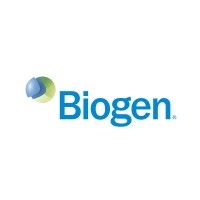Biogen

- Country
- 🇺🇸United States
- Ownership
- Private
- Established
- 1978-01-01
- Employees
- 7.5K
- Market Cap
- $29.6B
- Website
- https://www.biogen.com
- Introduction
Biogen, Inc. is a biopharmaceutical company, which engages in discovering, developing, and delivering therapies for neurological and neurodegenerative diseases. Its products include TECFIDERA, VUMERITY, AVONEX, PLEGRIDY, TYSABRI and FAMPYRA for the treatment of MS, SPINRAZA for the treatment of SMA, ADUHELM for the treatment of Alzheimer's disease, and FUMADERM for the treatment of severe plaque psoriasis. The company was founded by Charles Weissmann, Heinz Schaller, Kenneth Murray, Walter Gilbert, and Phillip Allen Sharp in 1978 and is headquartered in Cambridge, MA.
Clinical Trials
526
Trial Phases
6 Phases
Drug Approvals
9
Drug Approvals
Clinical Trials
Distribution across different clinical trial phases (422 trials with phase data)• Click on a phase to view related trials
A Study to Learn More About the Safety of BIIB145 and How it is Processed in the Body of Healthy Adult Participants
- Conditions
- Healthy Volunteer
- Interventions
- Drug: BIIB145Drug: Placebo
- First Posted Date
- 2025-11-06
- Last Posted Date
- 2025-11-13
- Lead Sponsor
- Biogen
- Target Recruit Count
- 104
- Registration Number
- NCT07225517
A Study to Learn More About the Long-Term Safety of Tofersen (Qalsody) in Chinese Participants With SOD-1 Amyotrophic Lateral Sclerosis (ALS)
- First Posted Date
- 2025-11-03
- Last Posted Date
- 2025-11-03
- Lead Sponsor
- Biogen
- Target Recruit Count
- 12
- Registration Number
- NCT07223723
A Study to Learn About Salanersen's (BIIB115) Effects on Movement and Its Safety When Given Before Symptoms Appear in Babies With Genetically Diagnosed Spinal Muscular Atrophy (SMA)
- First Posted Date
- 2025-10-28
- Last Posted Date
- 2025-10-28
- Lead Sponsor
- Biogen
- Target Recruit Count
- 30
- Registration Number
- NCT07221669
A Study to Learn About the Effects of Felzartamab Infusions on Adults With Kidney Transplants Who Have Late Isolated Microvascular Inflammation
- Conditions
- Microvascular Inflammation
- Interventions
- Drug: Placebo
- First Posted Date
- 2025-10-21
- Last Posted Date
- 2025-11-04
- Lead Sponsor
- Biogen
- Target Recruit Count
- 81
- Registration Number
- NCT07219043
- Locations
- 🇺🇸
Cooperman Barnabas Medical Center, West Orange, New Jersey, United States
A Study to Learn if Taking BIIB141 (Omaveloxolone) Affects How Omeprazole is Processed in the Body and About BIIB141's Safety in Healthy Adults Aged 18 to 55
- First Posted Date
- 2025-09-02
- Last Posted Date
- 2025-10-23
- Lead Sponsor
- Biogen
- Target Recruit Count
- 22
- Registration Number
- NCT07149415
- Locations
- 🇺🇸
Austin Clinical Research Unit, Austin, Texas, United States
- Prev
- 1
- 2
- 3
- 4
- 5
- 101
- Next
News
Genentech's Gazyva Shows Significant Efficacy in Phase III Trial for Pediatric Idiopathic Nephrotic Syndrome
Gazyva (obinutuzumab) demonstrated statistically significant superiority over mycophenolate mofetil in achieving sustained complete remission at week 52 in children and young adults with idiopathic nephrotic syndrome.
Biogen Acquires Exclusive Rights to Vanqua Bio's C5aR1 Antagonist for Inflammatory Diseases in $1.06 Billion Deal
Biogen secured exclusive worldwide rights to Vanqua Bio's preclinical oral C5aR1 antagonist through a licensing agreement worth up to $1.06 billion, including $70 million upfront and $990 million in potential milestone payments.
Biogen Acquires Global Rights to Vanqua Bio's Inflammatory Disorder Drug in $1.06 Billion Deal
Biogen has secured global rights to Vanqua Bio's experimental oral drug targeting inflammatory disorders for up to $1.06 billion, strengthening its immunology pipeline.
Abeona Therapeutics Appoints Gene Therapy Expert James Gow as Senior VP of Clinical Development
Abeona Therapeutics has appointed James A. Gow, MD, MBA, MS, MHCM, as Senior Vice President, Head of Clinical Development & Medical Affairs, effective immediately.
Indivi and Clouds of Care Partner to Advance Deep Phenotyping Technologies for Alzheimer's and Parkinson's Drug Development
Two TechBio companies, Indivi and Clouds of Care, announced a strategic partnership to advance precision medicine tools in early-phase neuroscience drug development for Alzheimer's and Parkinson's disease.
CD40-Targeted Therapies Advance Toward First Approval by 2027 with Over 35 Candidates in Clinical Development
Over 35 CD40-targeted therapies are currently in clinical trials, with the first approval expected by 2027 according to new market research.
Stoke Therapeutics Appoints Ian Smith as CEO as Phase 3 Trial for Dravet Syndrome Treatment Advances
Stoke Therapeutics has appointed Ian Smith as Chief Executive Officer after he served as Interim CEO since March 2025, bringing over 30 years of rare disease drug development experience.
Roche's Obinutuzumab Awaits FDA Decision as Lupus Market Analysis Reveals Launch Success Factors
Roche/Genentech's obinutuzumab (Gazyva) is anticipated to receive FDA and EMA decisions in 2025 following positive Phase III REGENCY trial results for lupus treatment.
Ultragenyx Appoints Eric Olson as Chief Business Officer to Lead Rare Disease Pipeline Expansion
Ultragenyx Pharmaceutical appointed Eric Olson as Chief Business Officer and Executive Vice President effective September 22, 2025, following Thomas Kassberg's planned retirement after 14 years with the company.
Biogen Acquires Alcyone Therapeutics for $85M to Advance Implantable Drug Delivery System for Neurological Therapies
Biogen will acquire Alcyone Therapeutics for $85 million upfront plus development milestones to gain full rights to the ThecaFlex DRx implantable drug delivery system.
